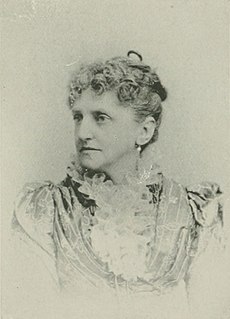A Quote by Annie Lowrey
Many women are the lower-earning partner in a married couple, thanks in part to forces that relegate women to less remunerative professions and pay them less for the same work.
Related Quotes
Increasingly, men are realizing exactly that - that having an educated, economically independent partner reduces the pressure on them to be the sole provider. Many men are also beginning to understand that participating in housework and childcare can be rewarding. Women with higher education and/or earnings are so much less likely than other women to divorce, that by age 40, they are more likely to be married than any other group of women.
Here's the pay paradox that Why Men Earn More explains: Men earn more money, therefore men have more power; and men earn more money, therefore men have less power (earning more money as an obligation, not an option). The opposite is true for women: Women earn less money, therefore women have less power; and women earn less money, therefore women have more power (the option to raise children, or to not take a hazardous job).
There is no going back to a time when most women will feel compelled to enter or stay in a bad marriage just for economic security or social respectability. So today, the best way to get women once more interested in getting married and having children is for men to accept women's new insistence on equality. This is, I think, why educated women in America, are now more pro - marriage and more disapproving of divorce than other groups of women who have less experience with egalitarian partners or less clout in getting their needs met in relationships.
The legacy of women's war work is our present post-industrial employment structure. It was the war that created the demand for a technologically advanced, de-skilled, low-paid, non-unionized female workforce and paved the way for making part-time work the norm for married women now. A generation later, it was the daughters of wartime women workers who completed their mothers' campaign for equal pay.
The backlash against women's rights would be just one of several powerful forces creating a harsh and painful climate for women at work. Reagonomics, the recession, and the expansion of a minimum-wage service economy also helped, in no small measure, to slow and even undermine women's momentum in the job market. But the backlash did more than impede women's opportunities for employment, promotions, and better pay. Its spokesmen kept the news of many of these setbacks from women. Not only did the backlash do grievous damage to working women C it did on the sly.
The lower the family income, the higher the probability that the mother must work. Today, 1 out of 5 of these working mothers has children under 3. Two out of 5 have children of school age. Among the remainder, about 50 percent have husbands who earn less than $5,000 a year-many of them much less. I believe they bear the heaviest burden of any group in our Nation. Where the mother is the sole support of the family, she often must face the hard choice of either accepting public assistance or taking a position at a pay rate which averages less than two-thirds of the pay rate for men.
The dream for many millennial women is to make a difference as social or political entrepreneurs. They are using the social media and marketing tools they have mastered to empower less fortunate women and direct them onto career tracks that women have traditionally avoided, like science and technology.
































